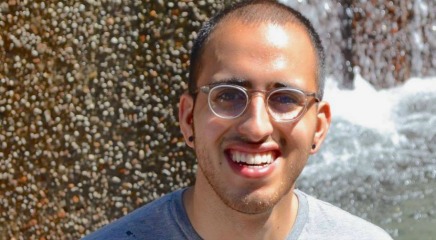Jason Farra
Jason Farra
Vancouver, Canada
A focus on environmental issues had been present throughout my education and sustainability was something I had been interested in for a long time. However, it wasn’t until after I became involved in high school leadership programs that I began attending youth sustainability events, where I met numerous other students who were also passionate about environmental issues. They were spearheading amazing initiatives, whether it be school sustainability projects or climate activism campaigns. All of these were truly youth-led, which made me realize just how large of an impact we could have collectively and inspired me to take action. It was truly exciting to discover all of the great sustainability resources and networks that I could tap into. Since then, my involvement in the sustainability movement has only grown, continuing into university and beyond.
I was part of Common Energy for a few years, the largest student-led sustainability organization at the University of British Columbia, where I worked on and helped to support various campus sustainability initiatives (e.g., an anti-bottled water campaign, sustainability education events, waste audits).
I’ve also been working with Metro Vancouver Youth4Action, the same program I was part of back in high school. I’m now helping to organize events that bring sustainability-minded students together to gain leadership skills and connect with others (just like I did), as well as supporting them to organize their own projects and events too.
I’m hopeful for a future where long-term sustainability is an integral part of everything that we do and build; an equitable future where it is easy for us all to make sustainable choices in our everyday lives. To get there, sustainability needs to go beyond being portrayed as just the sum of our individual actions and be seen as requiring wider systemic change as well. It needs to be a concept that everyone can recognize the importance of, in that the environmental issues we’re facing are accepted as being intertwined with today’s social and economic issues too.
